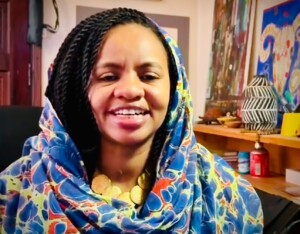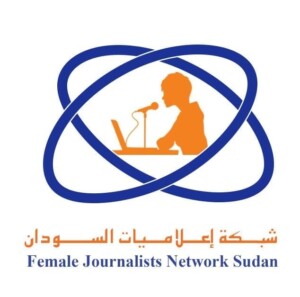El Jareeda daily gagged – ‘Hardest time since decades for Sudanese press’
Security officers confiscated the entire print-run of El Jareeda daily newspaper this morning. According to the editor-in-chief (88) of the independent El Ayam newspaper, the Sudanese press has never witnessed such pressure as during this year.
El Jareeda had published the news about a group of wealthy Sudanese medical students who had left Khartoum on Friday to join the ranks of the Islamic State in Syria. The newspaper revealed that the daughter of the spokesman for the Ministry of Foreign Affairs, Ali El Sadig, was among them.
Security officers confiscated the entire print-run of El Jareeda daily newspaper this morning. According to the editor-in-chief (88) of the independent El Ayam newspaper, the Sudanese press has never witnessed such pressure as during this year.
El Jareeda had published the news about a group of wealthy Sudanese medical students who had left Khartoum on Friday to join the ranks of the Islamic State in Syria. The newspaper revealed that the daughter of the spokesman for the Ministry of Foreign Affairs, Ali El Sadig, was among them.
Since the beginning of 2015, the print-runs of some 75 newspapers have been seized. On 16 February, 14 daily papers were confiscated in one day. In May and June, the National Intelligence and Security Service (NISS) confiscated the copies of 17 daily newspapers. Four, among them El Jareeda, were suspended for a short period.
Media watchdog Reporters without Borders (RSF) said that the “massive and indiscriminate seizures constitute an unacceptable act of censorship”.
Mahjoub Mohamed Salih, founder and editor-in-chief of El Ayam daily newspaper, told AFP that his job has never been so difficult.
Being a journalist for more than 60 years, he has been detained numerous times, banned from publishing for two years in the 1950s, and his newspaper was nationalised for 16 years since 1970. But never, he said, has he witnessed so much pressure as now. “This is the most difficult period to work as a journalist,” he stressed.
Financial losses
Instead of seeing hoped-for improvements in the country's press climate, he still worries every day. “I keep my fingers crossed that tomorrow morning, I don't get a telephone call telling me that my newspaper has not reached the reader,” Salih said.
El Ayam has been confiscated less often than some other newspapers, but fear of financial losses he could suffer has made him cut his circulation to just 3,000 copies per day.
He estimated that newspapers with a wider circulation of 20,000 per day could lose up to SDG30 million (almost $5 million) per confiscation, a significant amount in a country where most newspapers sell for SDG2 ($0.33).
Ashraf Abdelaziz, editor-in-chief of El Jareeda, told Radio Dabanga after the confiscation of the print-run and suspension of his newspaper in May that the NISS intends to exhaust the newspapers financially, as they still have to pay their staff and the printing presses.
El Akhbar daily newspaper announced this month that it would cease publication indefinitely from 28 June onwards, because of a “financial crisis”.
Censorship
Sudanese reporters have worked under strict surveillance since Al Bashir seized power in a 1989 Islamist-backed coup.
Pre-publication censorship was abolished in 2009, but little has changed. Sudan still ranks 174th out of 180 countries in RSF's 2015 World Press Freedom Index.
“This is the most difficult period to work as a journalist.”
Nowadays, newspapers face a long, unwritten list of off-limit topics. “The whole picture is painted red, there isn't a red line,” Salih explained.
‘Free rein’
Officially, the Ministry of Information and the government-run Press Council are meant to oversee the press, and apply the country’s media laws. But the NISS has free rein to carry out its seizures, often without informing the Press Council or the editors of the newspapers. “All press issues are dealt with by the security apparatus,” the editor-in-chief of El Ayam said.
The print license of the pro-government political daily El Intibaha was suspended in May for more than two weeks over an article that mentioned child abuse in Sudan.
Like Salih, editor-in-chief of El Intibaha, El Sadig El Rizeigi, said that the country's journalists are facing difficulties like never before. “In the past, the security apparatus had red lines linked to politics and security. But the last confiscation of ten newspapers on one day was because of an article about a social issue.”
The NISS usually does not provide an official explanation for the confiscation of newspapers. "We have to resort to guesswork, and this is an unprecedented situation,” Salih said.
(AFP)











 and then
and then